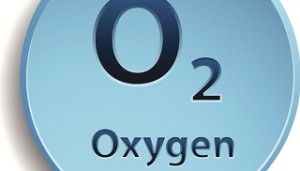Oxygen Levels Are Falling

One of the two major parties in US politics (which I won’t name) is pretending that none of this is happening. When our delegates came home from the Conference of Parties (climate change) meeting in Paris last December, they brought the agreement that 195 countries (including the US) had signed to the Congress that this party controls. The answer? No, we won’t even consider that.
We’re telling the world that the country that has been the envy of the planet is now shunning its responsibilities to create a sustainable future. It’s pitiful.

According to the linked-to article, the percentage of O2 dips to 19% in impacted areas. It also seems to say that the average O2 percentage is 21% which is about what it has been for centuries if I correctly recall.
He mentions that in early prehistoric times the O2 concentration was from 30% to 35%. I’ve read that elsewhere; it is also believed that the high O2 concentration was responsible for fires which were much more common in early prehistoric times.
His statement that an O2 concentration of less than 19% may cause fainting and other problems. Well, I live at an elevation of about 5000 feet and although the O2 may still be 21% here, the reduced atmospheric pressure means that the available O2 is considerably less (about 15% less actually) than at sea level and people here are doing just fine. Of course more research should still be done.
It looks as though more research is necessary to determine whether O2 may decline excessively. It may be that if excessive CO2 emissions are adequately dealt with O2 may increase without directly addressing it.
Of course O2 will decline as ocean acidification stops oxygen production by phytoplankton. “Climate change will wipe out most plankton which account for 50% of all oxygen we breathe and absorb 30% of carbon dioxide. This will dramatically accelerate ocean acidification and climate change while dramatically reducing global oxygen levels…”
The subject is interesting. I speculated in a comment online that O2 levels in the atmosphere should be falling if carbon is combining with atmospheric oxygen to form CO2. The amount is slight but significant. I didn’t realize at the time that understanding O2 levels could be a bellweather to major atmospheric events.
The article you referred to was a bit of a hack. It is a three year old article that mostly is simply a quote to an equally dismal article from the Guardian five years earlier. But buried in the last “here” at the end of the article is a reference to a substantive article written in 2009. Here it is again: http://www.i-sis.org.uk/O2DroppingFasterThanCO2Rising.php It was published from an organization unfortunately named “ISIS” or with more clarity “Institute of Science in Society.” That article entitled “O2 Dropping Faster than CO2 Rising” reviews much of the chemistry involved and then tries to uncover the mysterious “Oxygen sink” that is consuming atmospheric oxygen. Deforestation and Microbes were discussed but what seemed to be missing was the “Elephant in the Room.”
Methane is leaking at far higher levels around the world than was previously thought. Methane (CH4) will decompose bioticly and abioticly consuming oxygen (O2) to produce carbon dioxide (CO2). As a result the lowering of oxygen levels could be our clue to a far more disastrous series of events than the “slow” global warming disaster of carbon dioxide: http://www.alternet.org/environment/ticking-time-bomb-could-cause-such-rapid-global-warming-wed-be-unable-prevent-extinction
Even more scary is the prospect of widespread eutrophication of areas of the ocean with reduced dissolved levels of oxygen due to warming waters together with fertilizer run off.
This could eventually promote the multiplication of anaerobic bacteria, and potentially, the release of hydrogen suplhide into the atmosphere.
Hydrogen is a deadly poison human lethal at levels of around 600 parts per million, and an irritant down to around 10-20 parts per million.
Not saying this will happen, or even that it is particularly likely but it is one of the extreme scenarios we need to ensure does not happen.
http://robertscribbler.com/tag/hydrogen-sulfide-gas/
Gary,
In your third paragraph probably you meant to write “hydrogen sulfide” rather than “hydrogen”.
There is also the possibility that methane, which is now trapped, could be released as warming continues. That could result in a much higher amount of CH4 in the atmosphere than has been projected. Because CH4 is removed from the atmosphere at least partly by combining with O2 to form CO2 and H2O, that could accelerate warming even though the CH4 has a much shorter half life in the atmosphere than CO2.
I’m not convinced that we know exactly what will happen, but there could possibly be a catastrophe far greater than is generally realized. An extinction of all life forms that require O2 to survive could occur. Probably recovery would eventually occur, but that could take centuries or even millions of years.
Remember that problem from frosh college? You have a pond lily that increases exponentially, at what size will you decide to cut it back?
What if our oxygen is connected to the phytoplankton in the oceans surface and its dying?